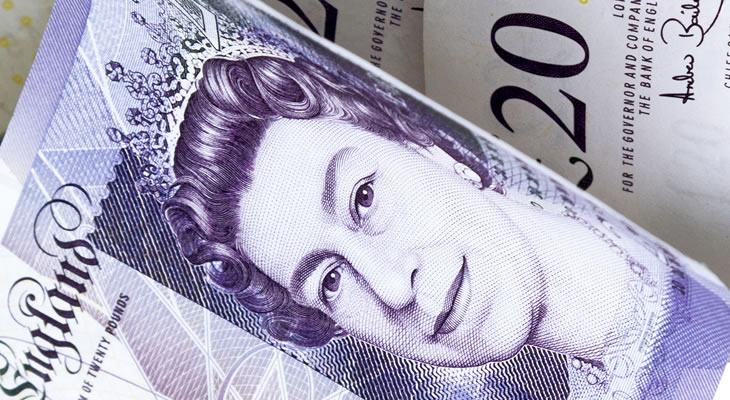Euro Pound (EUR/GBP) Exchange Rate Rises as UK Services Optimism Slides to Lowest Levels since 2009 Recession
This morning, the Euro rose against the Pound following a disappointing UK services PMI, with the pairing currently trading at an inter-bank rate of £0.8783.
The UK services PMI saw business activity stagnate with a reported drop in new work, as the figure slipped to 50.1 in January from a previous 51.2.
Duncan Brock, Group Director at the Chartered Institute of Procurement and Supply, stated:
‘At the risk of sounding like a broken record, Brexit uncertainty continues to be at the heart of the malaise as clients delayed orders and consumers were deeply reluctant to spend under the continuing cloud of hesitation, indecision and ambiguity.
‘[…] As optimism levels remained at some of the lowest levels since the last recession in 2009, the vice-like grip of Brexit is now taking hold of the sector, making it a very difficult start to the year and leaving little hope for improvement next month.’
Retail sales figures for the Eurozone were also released this morning, showing that sales in December had slipped by -1.6% compared to November, although this could do little to stop the single currency taking advantage of the weakness in the Pound.
Earlier: Euro (EUR) Sentiment Slips as Eurozone Composite PMI Slides to Five-and-a-Half Year Low
This morning also saw a poor composite PMI released for the Eurozone, showing this figure had continued its decline, sliding for the fifth month in a row to 51.0 – its lowest level for five-and-a-half years.
This saw the pairing momentarily slip, before the single currency was able to take advantage of weakness in Sterling and push back.
Chris Williamson, Chief Business Economist at IHS Markit commented on the Eurozone nearing stagnation, stating:
‘The deteriorating picture looks broad-based. Italy is in its steepest downturn for over five years and France has sunk into its sharpest decline for over four years. Faster growth in Germany and Spain meanwhile looks tenuous, as order book trends deteriorated in both cases.
‘The survey indicates that political uncertainty, both global and local, is increasingly taking a toll on growth, dampening demand and driving increased risk aversion. Add in rising global trade tensions, Brexit uncertainty, the ‘yellow vest’ protests in France and a spluttering auto sector, it’s clear that the business environment is at its most challenging since the height of the region’s debt crisis.’
Yesterday: Pound (GBP) Slides as UK Construction Employment Growth Falls to Two-and-a-Half Year Low
Throughout Monday morning, the Euro remained buoyed against the Pound, likely a result of the UK’s construction PMI for January falling to 50.6, showing a lack of momentum in the construction sector.
The data showed this was the slowest rise in business activity in ten months, with employment growth within the sector also hitting a two-and-a-half year low, which likely left Sterling weakened.
Group Director at the Chartered Institute of Procurement and Supply, Duncan Brock stated:
‘The sector suffered a sharp drop in output growth in January, and the softest rise in purchasing volumes since September 2017, as Brexit continues to hamper progress and dampen client confidence.
‘The biggest shock came in the form of job creation which managed to suffer the slings and arrows of Brexit highs and lows with solid hiring since the referendum result. Employment rose at the slowest rate since July 2016 and with optimism also in short supply, the sector only needs a small nudge to tip it closer to recession.’
EUR/GBP Outlook: Will an Increase in German Factory Orders Cause EUR to Rally?
Likely to see the Euro Pound (EUR/GBP) pushed higher is the release of Germany’s seasonally adjusted factory orders for December, which are forecast to increase by 0.3% from the previous -1.0%.
As there is a lack of UK economic data releases, Brexit may remain one of the main catalysts for movement of the Pound, as Brexit discussions are continued.
The pairing seems likely to continue to rise tomorrow, as the debate over ‘alternative arrangements’ to the Irish backstop coming to an end, and if MPs are unable to get an idea approved by the EU it could leave sentiment for the Pound dampened.
Wednesday is likely to see movement of the EUR/GBP pairing as the Bank of England (BoE) is due to release their interest rate decision, and if this figure remains steady at 0.75% as forecast it could see the Pound push back against the Euro.


Comments are closed.